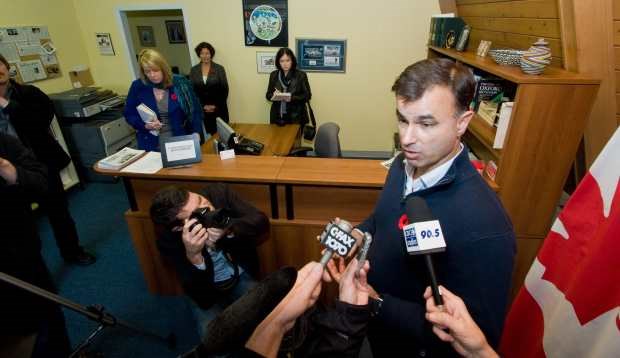For Keith Martin, the line in the sand was, literally, in the sand.
In 2003, he defied his own Canadian Alliance party and voted against joining the U.S. invasion of Iraq.
As expected, the party punished the Esquimalt-Juan de Fuca MP by booting him from his position on the foreign affairs committee.
Martin cites that story now, on the phone from Washington, D.C., as an example of the kind of dilemma new members of Parliament may find themselves in after Monday’s election.
Be prepared to be flexible but don’t lose sight of your core beliefs, is his advice to them. “You have to understand where those lines are in your heart and soul.”
Pat Carney’s advice to the newbies, learned the hard way from 27 years as a Progressive Conservative MP and senator, is a bit more down-to-earth: “Decide which seat you’re going to be comfortable in on the airplane and book it, because you’re going to spend a lot of time in it.”
West Coast MPs should prepare for jet lag as a permanent condition, she says. For real. “Somebody once asked me my address. I said ‘Air Canada, 2C.’ ”
Former Liberal cabinet minister David Anderson reduces his counsel to a single word: “Patience.”
Those elected Monday might intend to charge into the House of Commons with a full head of steam, he says, but they’ll soon find all those glibly uttered campaign promises aren’t so easy to implement.
All three speak from experience. Anderson sat as a Victoria-area MP from 1968 to 1972 and again from 1993 to 2006. Saturna Island’s Carney was an MP from 1980 to 1988, and served in the Senate from 1990 to 2008. Martin was Esquimalt-Juan de Fuca MP from 1993 to 2011, elected first as a member of the Reform Party (which was folded into the Alliance) before winning his last three elections as a Liberal.
Martin now leads a Washington-based organization that applies university research to real-world health problems.
New MPs, he says, should have a clear idea of why they want the job and what they want to accomplish for their community and country.
“I’d really encourage them to be conscious of the public good and not worry about themselves.”
Martin says to advance a cause, it’s crucial to build relationships with like-minded MPs of all parties
Carney also says new MPs should cross party lines when seeking out mentors.
No matter how much you think you know, the learning curve is huge, she says. It takes a full term just to learn the rules of Parliament, which you can only do by sitting there watching and listening, but if you want to be effective, you have to put in the hours. “If not, you’re just a sheep in the flock.”
Anderson figures new MPs will be as frustrated by Ottawa’s glacial pace as he was when first elected at age 31. “They think things are going to go chop, chop, chop, and they don’t.”
The reality is that complicated issues take time to work out. “It’s only easy during the sloganeering of the campaign.” Only so much legislation can be squeezed onto the agenda, everything has to go through committee, the lawyers need a shot at the language, every policy decision creates constituencies of winners and losers, and regional caucuses must be placated. Rush in without adequate consideration, and you’ll trip over the law of unintended consequences.
Politicians must be ready to change their minds when the evidence demands it. Anderson, as revenue minister, found himself in the unenviable position of having to explain to prime minister Jean Chrétien that the Goods and Services Tax, which Chrétien had campaigned against (“We hate the GST and we will kill it”) was, after thorough study, the right way to go.
The job comes at a personal cost, particularly to West Coast MPs facing the long commute to Ottawa. When Carney was first elected in 1980, she was the only mother in Parliament who lived west of the Lakehead. She had a 15-year-old son at home in Vancouver, flew back weekly to see him, cooking a week’s worth of suppers at a time. It’s more family-friendly now, but Carney says she has still talked a lot of women from the West out of running.
Carney warns that West Coast MPs who don’t spend enough time at home do so at their own risk. “Never forget the people who put you there.” Hire a good constituency assistant and spend time in the riding. Kim Campbell, who took over Carney’s seat, was bounced by voters in Vancouver Centre in part because of a perception that she was rarely there. Campbell was prime minister at the time.
MPs need to take care of their health. Those airplane meals, after-dinner drinks and wolfed-down-at-the-desk lunches added up to several extra pounds in Carney’s first term. “There is a gym in the House of Commons. Sign up.”
It can be a Game of Thrones place, too, with the greatest danger sometimes coming from inside your own caucus. She quotes the late MP Jean Pigott: “Keep your eyes on the leader and your back to the wall.”
But an individual can do a lot of good, she says.
“It’s overwhelming, but it’s the experience of a lifetime, so enjoy it while you can.”



